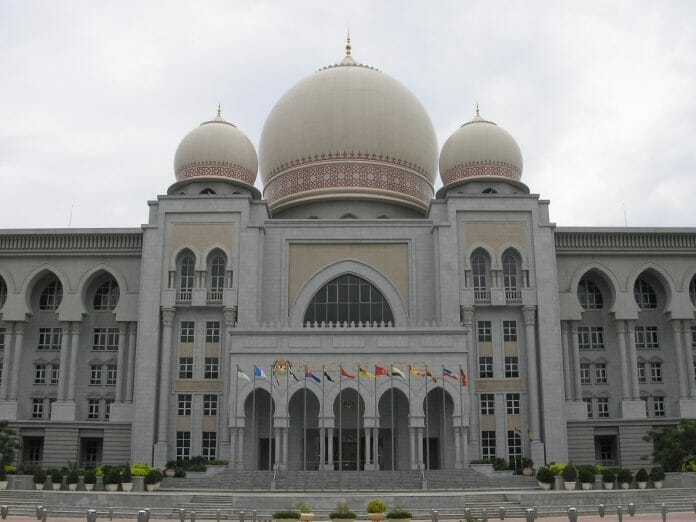The Malaysian Bar said it is alarmed by the statement made by Home Minister Datuk Seri Saifuddin Nasution Ismail, announcing plans to proceed with what the Bar calls a regressive amendments to the Federal Constitution regarding citizenship.
Reference its previous press release entitled “The Malaysian Bar Urges the Government to Re-evaluate and Halt Recent Proposed Amendments to Citizenship Laws Deemed Regressive”, it restates that the regressive amendments should be halted, as the erosion of rights of stateless persons are not attributable to the existing provisions of the Federal Constitution, but a result of the inefficiencies, complex and discriminatory bureaucratic practices, and lack of transparency within the National Registration Department. The Bar has asked for the Government to instead focus its resources on training officers in the NRD to efficiently deal with citizenship applications and abolish unnecessary discriminatory bureaucratic hurdles that seek to delay the processing of such applications.
While it supports efforts by the Government to amend citizenship provisions in the Federal Constitution to grant Malaysian mothers the equal right to confer automatic citizenship on their children born overseas, just like Malaysian fathers — this specific amendment approved by the Cabinet and “championed” by the Home Minister is no better than crumbs of compassion that come with overbearing barriers of exclusion on other areas concerning statelessness.
The Malaysian Bar says it stands by that the Government’s proposed amendments to the Federal Constitution are regressive in nature, and it has become increasingly urgent that the Government takes the severe pushback expressed by numerous quarters seriously, instead of continuing to pursue the regressive amendments.
The regressive amendments which the Bar highlights are:
1. Amending section 19B of the Second Schedule, Part III of the Federal Constitution to alter citizenship by “operation of law” to citizenship by “registration”, which will result in foundlings and abandoned children being deprived of automatic citizenship.
The term “operation of law” affords protection to foundlings as this provision grants them the benefit of the doubt in cases where the date and place of their birth, as well as the identity of their biological parents, are unknown and cannot be substantiated.
The suggested amendment seeks to place foundlings under the discretionary authority of the Home Minister for citizenship determination, unjustly imposing the onus of proving parentage on the child.
2. Amending section 1(a) of the Second Schedule, Part II of the Federal Constitution to delete the words “permanently resident”, which would result in children born to Malaysian Permanent Residents (“PR”), who would become stateless, to no longer have access to citizenship by “operation of law”.
In effect, vulnerable populations — including current stateless communities like the “childhood statelessness” category, Orang Asli, and Orang Asal — could also face the peril of being ensnared in the cycle of statelessness across generations.
3. Amending Article 26(2) of the Federal Constitution to replace “date of the marriage” with “date of obtaining citizenship” may lead to citizenship deprivation of foreign wives, because if a Malaysian man’s marriage dissolves within two years of his wife being granted Malaysian citizenship, the foreign spouse’s citizenship will be revoked. This will have far-reaching consequences on the foreign spouse and the children (if any).
4. Amending Article 15(A) of the Federal Constitution to reduce the age limit from “twenty-one years” to “eighteen years” for citizenship registration effectively shortens the time frame for applications. The main source of the problem is the bureaucratic delays and appeals, which could take years to process citizenship applications, that subsist, as well as introduce, an illegitimate registration requirement that never existed previously.
The Malaysian Bar President Karen Chuah added while the Cabinet has given the green light to these regressive amendments, the decision creates a polychromatic hue when juxtaposed with other Government policies and law reform initiatives, particularly those aimed at empowering the Human Rights Commission of Malaysia — as even SUHAKAM’s criticisms of these amendments towards the struggles of stateless individuals in Malaysia — fell upon the Government’s deaf ears.
In analysing these proposed regressive amendments, Karen said it is apparent that they are designed to allow the NRD to impose discretionary citizenship processes in addition to the existing bureaucratic hurdles faced by stateless persons. The Malaysian Bar said it cautions against such amendments as an excessive allowance of discretion can pave the path to corruption. When discretion is utilised for purposes divergent from the public good or manipulated for personal gain, it can breed corruption and abuse of power.








